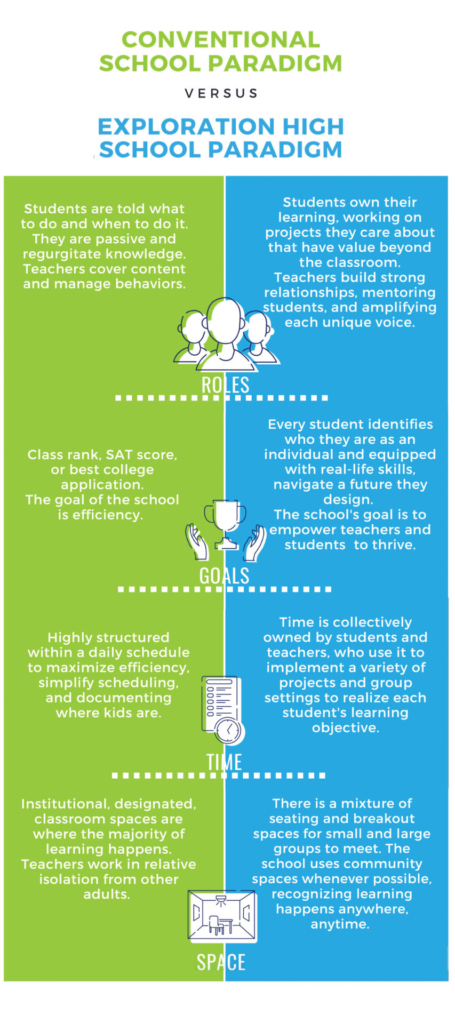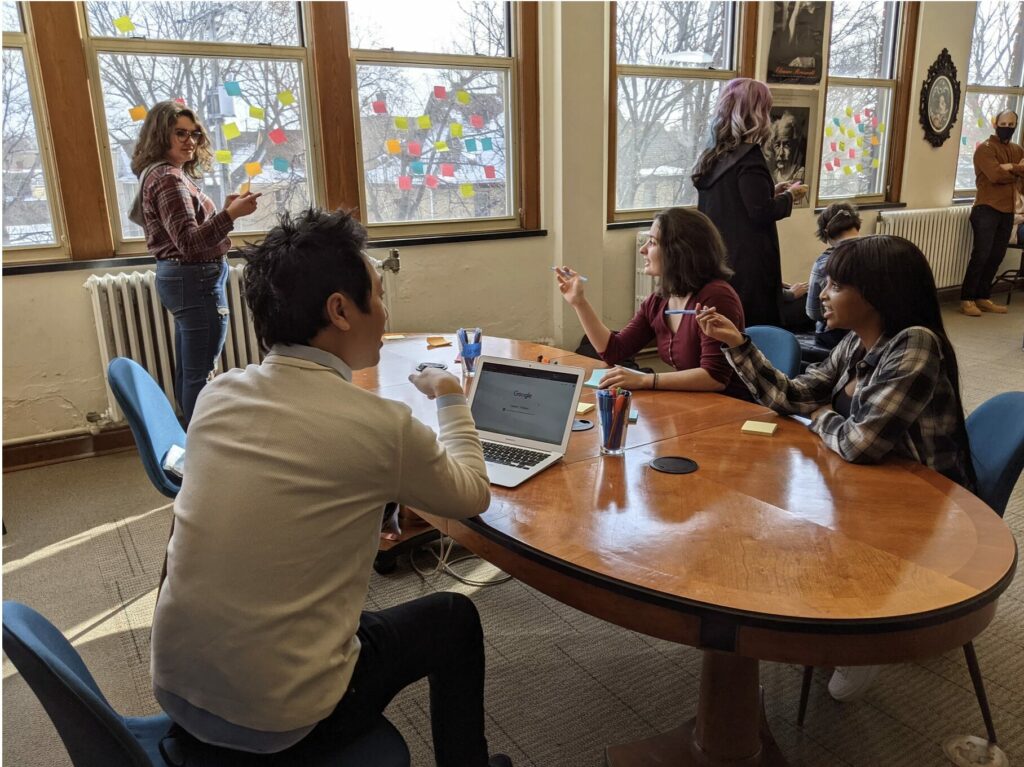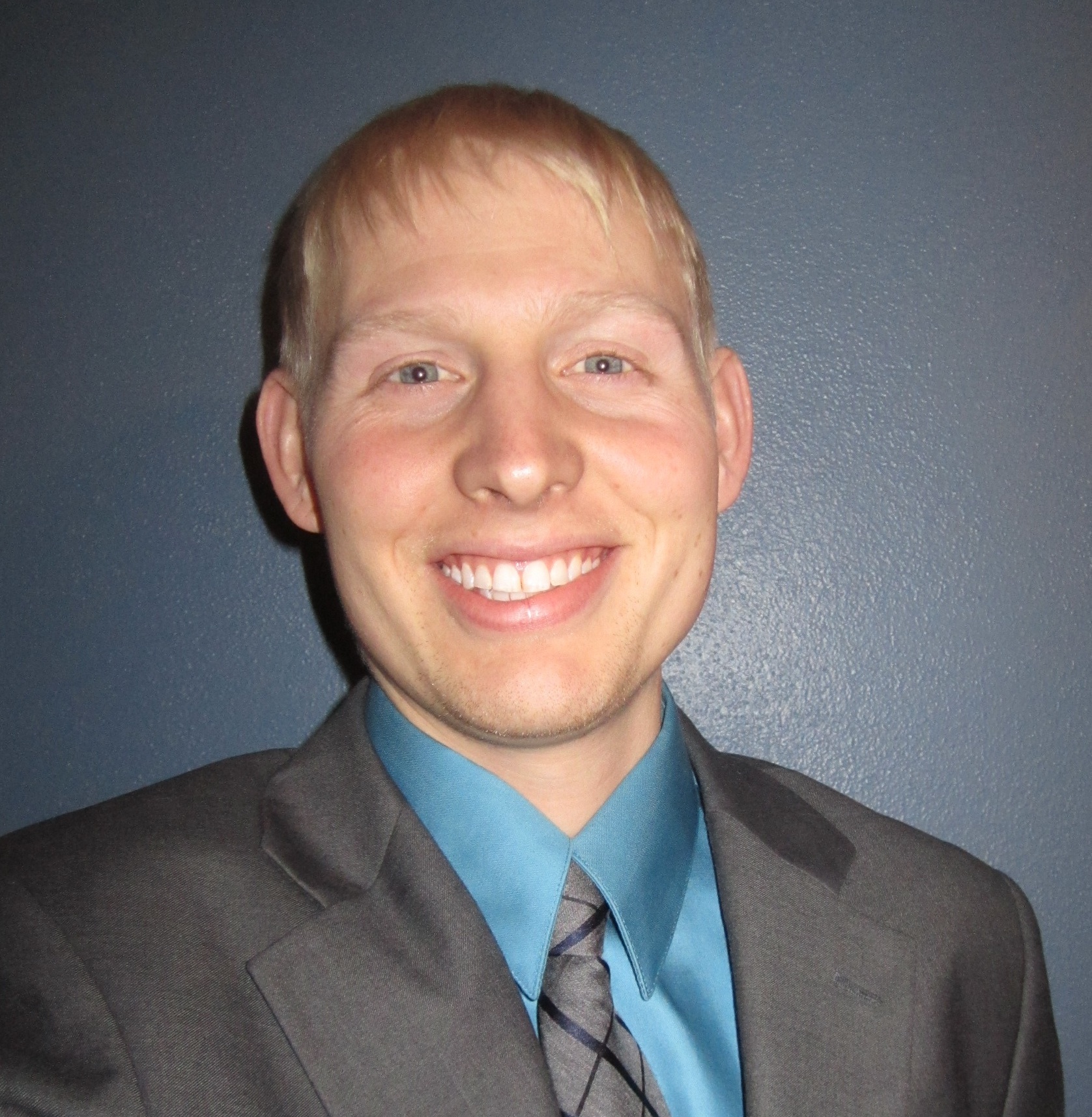Ironically, launching during the pandemic, despite being incredibly challenging, has actually given us even more confidence that our approach is the way to build a resilient, loving community that adapts to the unique needs, gifts, and life experiences of all of our kids.
Nathan Strenge, Founding Board Chair, Exploration High School
We recently caught up with Nathan Strenge, Founding Board Chair at Exploration High School, which launched this fall after 8 years of start-up work. Let’s hear how that long journey and the additional challenge of opening during the pandemic illuminated the possibilities of a learner-centered, community-connected ecosystem.
Q: What have you been up to since the last time we talked?
Nathan: Navigating how to launch a new school during a pandemic. It’s funny how it all worked out.
I was approached to start a new school, now Exploration High School which opened this fall, all the way back in 2013, and it took a long time for us to make it happen. That time was all worth it. We worked to listen, learn, design, and understand what would really be a helpful addition to our community.
Come full circle to today and ironically, launching during the pandemic, despite being incredibly challenging, has actually given us even more confidence that our approach is the way to build a resilient, loving community that adapts to the unique needs, gifts, and life experiences of all of our kids. That process of empathizing, listening, learning, and ideating with our community has given us a strong foundation from which to create something impactful and longstanding.
Q: What is the learning environment like at Exploration High School?
Nathan: This learning environment was truly co-created with our students. It is a public school for public good. The four main focuses of the school are 1) learning by doing; 2) small classes and deep relationships; 3) community-based learning; and 4) youth voice and leadership. We worked with learners to redesign roles, goals, time, and space—creating a whole new possibility for how those come together at Exploration. We believe all of these elements make up the Exploration School Paradigm.

Q: We noticed on social media that learners are already out in the community exploring and working on projects. How and why is this kind of open-walled learning important at Exploration?
Nathan: One of the draws of Exploration is Community Asset Projects (CAPs). While we are in a deliberative co-creation process with our students to build a CAPs framework, they are based on the philosophy that our learning should deeply connect with and contribute to the community around us. We thank Emily Liebtag and Tom Vander Ark for their book Difference Making at the Heart of Learning for inspiring us.
Being purposefully open-walled makes learning more authentic (important to the world) and relevant (important to the learner). Being open-walled creates opportunities for students to build a network and advance their future-ready skills, like complex problem solving, analytical thinking, and adaptability. Building these networks and developing hard and soft future-ready skills are essential in today’s context, and being open-walled is foundational to actualizing this.
Q: What are you noticing about the learners in this space who have never experienced something like Exploration before?
Nathan: A process that can best be described as unshelling. We have noticed that many students who came from schools not intentionally centered on relationships, belonging, personal wellness, and community difference-making had varying layers of armor they’d built up to protect themselves. While each student’s previous school and life experiences have been unique, patterns of bullying, mental health (especially during COVID), and irrelevant learning forced kids to put up the armor. While the armor was put up for protective purposes, in many cases, it was clearly hindering the growth kids needed to become their full selves.
The first few weeks at Exploration were spent with kids exploring the local community with their advisory groups, getting to know one another on a deeply human level, and envisioning their ideal school experience—one that would respond to each person’s unique set of gifts and needs.
Kids met with their Learning Guides in respective content areas, largely to establish strong working relationships and establish areas of interest for future Community Asset Projects. Time was devoted to discussing both why and how Exploration will use restorative practices. These simple, yet intentional, efforts to build relationships and cultivate belonging started to break down many of those harmful (if at the time necessary) layers of armor.
We have noticed that many students who came from schools not intentionally centered on relationships, belonging, personal wellness, and community difference-making had varying layers of armor they’d built up to protect themselves.
Nathan Strenge, Founding Board Chair Exploration High School
Q: Have you found that there is demand from families out there for this type of learning environment?
Nathan: That’s a great question because the answer has implications for schools everywhere. From our perspective, in the ongoing wake of COVID, our families (inclusive of parents, guardians, and grandparents) were largely asking for “something different.”
For many of the families, having their child at home during the pandemic exposed them to things they didn’t like about how conventional schools operated. In some cases, they saw their kid doing a lot of busywork that didn’t seem to have much relevance or authenticity. In other cases, they felt their parent’s voice (not to mention their child’s voice) wasn’t being heard by their school. Regardless of the reason, we saw a vast majority of parents saying they wanted something different for their child, but they didn’t know exactly what that something was.
The most common thing parents said was that they wanted their child to be safe, healthy, and interested in what they were learning. Our message around a small, relationship-first community whose primary aim is to adapt the learning to the unique set of needs, gifts, and life experiences of the child resonated. Because every kid needs to be safe and healthy to set a strong foundation for deep, authentic, and relevant learning, our approach has made families really happy.
Q: Why try something new and why now?
Nathan: To us, the idea of creating a more human-centered, adaptable learning ecosystem isn’t new, but it is both urgent and important. We feel this urgency and importance for the same reasons the original crafters of the vision for learner-centered education at Education Reimagined said the current system of education couldn’t be fixed, it had to be reimagined.
This stems from our belief that every child deserves learning that adapts to their unique needs, gifts, and life experiences. This flexibility contradicts many of the structures in conventional schools. Moreover, the urgency and importance are compounded by the state of our society and the health of our planet—we see the ability for our youth to contribute to the world around them as paramount, and a vital part of their personalized learning journey to live a successful and fulfilling life. So, that’s why we do this work and why it is just as important now as ever.
Q: What is a moment that made you smile—made you realize all the hard work has been worth it?
Nathan: There are two moments that made me realize all the hard work has been worth it.
- About a month into the school year, we gave a student survey to check in and get a sense of how people were feeling. The results? 100% of our students responded that they felt safe at school. This told me that our focus on building really strong relationships from the start were paying off, and it would allow us to do really impactful things together in the time ahead.
- Just a few weeks into school, our director received this message from the parent of a student who had struggled in his previous school. He said, “I have not been as hopeful for my kid’s educational success and future as I am now. Thank you for renewing a sense of positivity and possibility in my son.”

